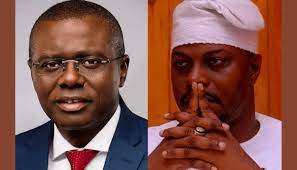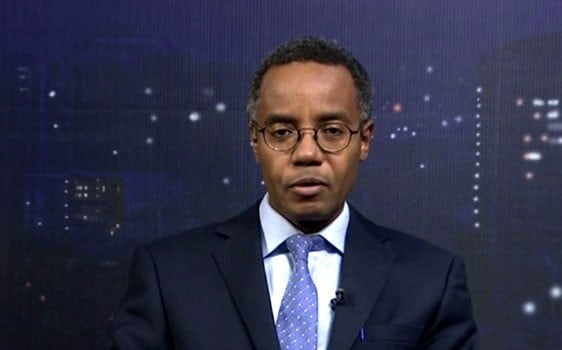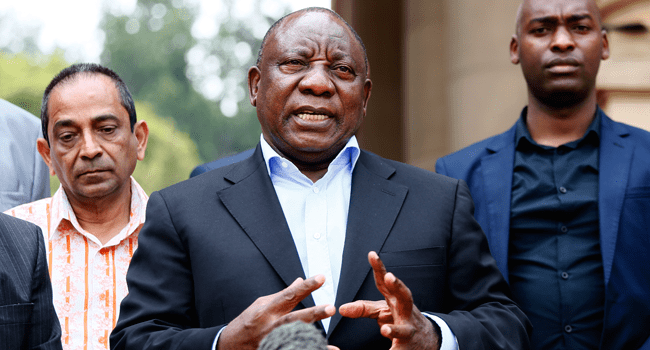Rhodes-Vivour’s petition is being dismissed in a final written address from INEC
INEC has petitioned the Lagos State Governorship Election case Tribunal to reject Gbadebo Rhodes-Viviour, a candidate for governor from the Labour Party, for a lack of proof in his case.
The arguments were included in a 32-page final written statement that INEC’s legal team, which included six other attorneys and was directed by Charles Edosomwan, SAN, submitted to the tribunal.
On April 9, Rhodes-Vivour, the petitioner, sought the tribunal to contest the results of the Lagos State governorship elections held by INEC on March 18.
When the trial began, the petitioner called ten witnesses to support his claims, while INEC, the first respondent, did not call any witnesses but instead submitted two documents that the court allowed to be entered as exhibits.
INEC has petitioned the Lagos State Governorship Election case Tribunal to reject Gbadebo Rhodes-Viviour, a candidate for governor from the Labour Party, for a lack of proof in his case.
The arguments were included in a 32-page final written statement that INEC’s legal team, which included six other attorneys and was directed by Charles Edosomwan, SAN, submitted to the tribunal.
On April 9, Rhodes-Vivour, the petitioner, sought the tribunal to contest the results of the Lagos State governorship elections held by INEC on March 18.
When the trial began, the petitioner called ten witnesses to support his claims, while INEC, the first respondent, did not call any witnesses but instead submitted two documents that the court allowed to be entered as exhibits.
INEC also submitted that of the 10 witnesses called by the petitioner, eight of them who testified either as supervisors or ward collation agents with respect to incidents that occurred at various polling units gave hearsay evidence of what they were told by polling unit agents, evidence which it argued ought to be expunged from the court records. The electoral umpire also went on to formulate three issues for determination.
The questions concerned whether or not the APC candidates, Governor Babajide Sanwo-Olu and his deputy, Obafemi Hamzat, ever experienced any limitations (individually or collectively) on their eligibility to run for governor of Lagos State in 2023.
“Whether or not the March 18, 2023, governorship election in Lagos State was conducted substantially in accordance with the Electoral Act of 2022, the Regulations and Guidelines for the Conduct of Elections, the Manual for Election Officials, and all other electoral legislation;
Sanwo-Olu “did not win the majority of the lawfully cast votes” in the Lagos State Governorship Election that was held on March 18, 2023, whether or not that was the case.
On issue one, INEC submitted that the petitioner failed to establish that the deputy governor did not accompany his nomination form with a verifying affidavit as evidence which was led by the candidate’s lawyer indeed showed that the affidavit was submitted and same was admitted as an exhibit before the tribunal.
Regarding Hamzat’s purported dual citizenship, INEC requested that the tribunal rule against the petitioner because they had not provided sufficient evidence to support the claim.
Concerning point number two, INEC observed that the petitioner’s main complaint was that the electoral body had broken an earlier promise to transmit election results to the INEC Results Viewing (IReV) portal in real-time.
In response to this, INEC said that the Electoral Act 2022’s definition of non-compliance is non-compliance with the Act’s requirements, not with the claimed promises made by INEC staff. Additionally, it stated that the Electoral Act makes no mention of compliance “in relation to transmission of results to the IREV.”
The election umpire extensively pleaded compliance with all the relevant laws governing its operations when it came to the conduct of elections and further submitted that the conduct of the March 18 Lagos Governorship Elections remained unimpeachable.
Without denying that it did violate the aforementioned rules, we argue that this would not by itself be termed non-compliance, let alone serious non-compliance. The argument being made here is that real-time or delayed results transmission is not the holy grail that the petitioner would have the tribunal believe.
This is due to the possibility that the electronically transmitted or transferred result may not be available, as is implied by a combined interpretation of paragraphs 48(e) and 93 of the Regulations and Guidelines for the Conduct of Election, 2022. In the situation,
the hard copy remains paramount. It is therefore disingenuous for the Petitioners to insist that the alleged non-transmission of the results in real-time amounted to non-compliance with the Electoral Act, 2022.”
Regarding the charges of voter intimidation and corruption, INEC just stated that the petitioner’s case was adversely affected by the lack of supporting evidence and requested the tribunal to disregard the claims.
As proof of what the evidence showed regarding whether Sanwo-Olu won the elections, INEC presented forms EC8D and EC8E, summarizing the results from all of Lagos State’s Local Government Areas and the declaration of results, respectively. INEC claimed that the petitioner’s presentation of his case had not in any way tainted the evidence in any way.
The electoral body concluded that based on the diligent examination of the evidence led by the petitioner, the court ought to return no other verdict than one of dismissal.
“The Petitioner wholly failed to discharge the evidential burden placed on him by Section 136 of the Evident Act, 2011, and Section 135 (1) of the Electoral Act, 2022. In the light of the wide range of serious allegations touching practically all of the units where the election was conducted, the total dearth of evidence in proof of the Petitioner’s case is most astonishing,” INEC said.



